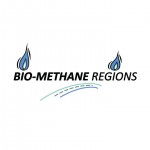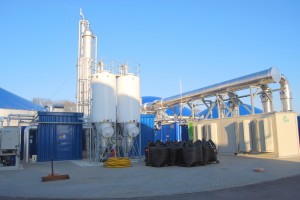 The Bio-methane Regions project has as its starting point the knowledge that some regions/countries of Europe have seen a good start made in the utilisation of bio-methane from anaerobic digestion (AD) plants whilst others have no use at all. Some countries have a strong base of biogas without much bio-methane and others have very few AD plants at all. Bio-methane Regions follows the successful Biogas Regions project that addressed the promotion of AD – largely to produce biogas utilised for cogeneration.
The Bio-methane Regions project has as its starting point the knowledge that some regions/countries of Europe have seen a good start made in the utilisation of bio-methane from anaerobic digestion (AD) plants whilst others have no use at all. Some countries have a strong base of biogas without much bio-methane and others have very few AD plants at all. Bio-methane Regions follows the successful Biogas Regions project that addressed the promotion of AD – largely to produce biogas utilised for cogeneration.
It has incorporated new partners in order to spread the range and experience and seeks to address the next logical steps in the promotion of the efficient and effective conversion of organic wastes and agricultural substrates into useable energy.
Bio-methane Regions seeks to stimulate the market development of AD – with a particular emphasis bio-methane production. It seeks to do that in ways that are appropriate to the current state of development of AD, biogas and bio-methane in the regions concerned. Analysing the reasons for take-off in some countries, best practice examples from wherever they exist, the barriers to development and the market conditions across the EU will give insights into the requirements to facilitate new developments. Armed with this information, each region has developed an action plan and strategy for moving forward.
The partners seeks to provide direct support to potential investors by reviewing and describing the varied technology available for biogas clean-up and injection, encourage and support cooperative ventures to overcome the high capital cost of the equipment by using the “economies of scale” and provide basic feasibility and economic viability assessment tools that guide the potential developer of an AD plant. The very valuable reports and practical tools that allow comparative costs to estimated are available on or via the project web page – www.bio-methaneregions.eu They were developed largely by the Technical University of Vienna and are of a high calibre.
Study tours for potential developers have been arranged so that there are opportunities to see operations and talk to operators. The UK partners, for instance, took 12 people to Brittany in November 2012 to look at small on-farm digesters – that are currently uncommon in Britain.
A biogas upgrading unit in Germany
Bio-methane will not always be the most appropriate use for biogas from an AD plant and the project would seek to provide guidance to a series of audiences on the merits of bio-methane and its deployment. There is, in many regions, a lack of knowledge and understanding of the opportunities offered by AD and bio-methane and the partners are still able to see progress through fairly simple communication activity.
A further work package seeks to address the issues surrounding quality and standards of operation. The Biogas Regions project highlighted the need for efficiency of operation and high standards of operation technically, environmentally and economically. AD plants can easily turn from profit to loss, from good neighbour to smell nuisance and from pollution-preventer to polluter, if high standards are neglected. Reports have been produced that assist with the key questions around plant monitoring but the benefits have been practically achieved through real examples where the University of Glamorgan (Wales) and the Styrian Energy Agency (Austria) have supported plant operators to increase yields through monitoring and corrective actions. Bio-methane Regions seeks to develop and encourage high standards so that the industry can grow with a good reputation amongst the public, politicians and regulators.
The key performance indicators of the project, revolve around the practical assistance that has been given to potential developers and the progress there has been towards the establishment of new AD capacity. The project is supported by the Intelligent Energy for Europe programme and the Commission want to see value for the investment – and how better to demonstrate that by pointing to renewable energy installations and carbon savings that have arisen as a result? Biomethane Regions partners are working with potential developers, large and small, in order to facilitate new digesters and/or increased efficiency in existing plant.
This post was written by Andy Bull, Head of Regional Strategy and Development – Severn Wye Energy Agency WellsFree tools and publications you can download from the project’s website



